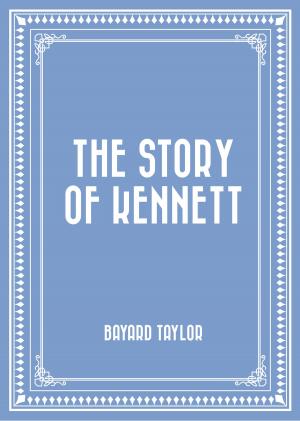| Author: | Andrew Carnegie | ISBN: | 9781531207380 |
| Publisher: | Krill Press | Publication: | February 15, 2016 |
| Imprint: | Krill Press | Language: | English |
| Author: | Andrew Carnegie |
| ISBN: | 9781531207380 |
| Publisher: | Krill Press |
| Publication: | February 15, 2016 |
| Imprint: | Krill Press |
| Language: | English |
The Gilded Age and the dawn of the 20th century are often remembered as an era full of monopolies, trusts, and economic giants in heavy industries like oil and steel. Men like John Rockefeller built empires and financiers like J.P. Morgan merged and consolidated them. The era also made names like Astor, Cooke, and Vanderbilt instantly recognizable across the globe. Over time, the unfathomable wealth generated by the businesses made the individuals on top incredibly rich, and that in turn led to immense criticism and an infamous epithet used to rail against them: robber barons.
Dozens of these men would be pilloried as “robber barons,” but few of them were as wealthy or influential as Andrew Carnegie, who built America’s foremost steel empire. Ironically, Carnegie epitomized the American Dream, migrating with his poor family to America in the mid-19th century and rising to the top of the business world in his adopted country. A prodigious writer in addition to his keen sense of business, Carnegie was one of the most outspoken champions of capitalism at a time when there was pushback among lower social classes who witnessed the great disparities in wealth; as he once put it, “Upon the sacredness of property civilization itself depends—the right of the laborer to his hundred dollars in the savings bank, and equally the legal right of the millionaire to his millions.” In a similar vein, he said, “Those who would administer wisely must, indeed, be wise, for one of the serious obstacles to the improvement of our race is indiscriminate charity.”
While Carnegie’s rise and wealth didn’t necessarily separate him from other 19th century business magnates, it was in the field of philanthropy that he left his most unique mark, even as it paved the way for others to follow his lead. One of his most famous quotes was that “the man who dies thus rich dies disgraced,” and for the last 15 years of his life, he contributed to countless causes.
The Gilded Age and the dawn of the 20th century are often remembered as an era full of monopolies, trusts, and economic giants in heavy industries like oil and steel. Men like John Rockefeller built empires and financiers like J.P. Morgan merged and consolidated them. The era also made names like Astor, Cooke, and Vanderbilt instantly recognizable across the globe. Over time, the unfathomable wealth generated by the businesses made the individuals on top incredibly rich, and that in turn led to immense criticism and an infamous epithet used to rail against them: robber barons.
Dozens of these men would be pilloried as “robber barons,” but few of them were as wealthy or influential as Andrew Carnegie, who built America’s foremost steel empire. Ironically, Carnegie epitomized the American Dream, migrating with his poor family to America in the mid-19th century and rising to the top of the business world in his adopted country. A prodigious writer in addition to his keen sense of business, Carnegie was one of the most outspoken champions of capitalism at a time when there was pushback among lower social classes who witnessed the great disparities in wealth; as he once put it, “Upon the sacredness of property civilization itself depends—the right of the laborer to his hundred dollars in the savings bank, and equally the legal right of the millionaire to his millions.” In a similar vein, he said, “Those who would administer wisely must, indeed, be wise, for one of the serious obstacles to the improvement of our race is indiscriminate charity.”
While Carnegie’s rise and wealth didn’t necessarily separate him from other 19th century business magnates, it was in the field of philanthropy that he left his most unique mark, even as it paved the way for others to follow his lead. One of his most famous quotes was that “the man who dies thus rich dies disgraced,” and for the last 15 years of his life, he contributed to countless causes.















